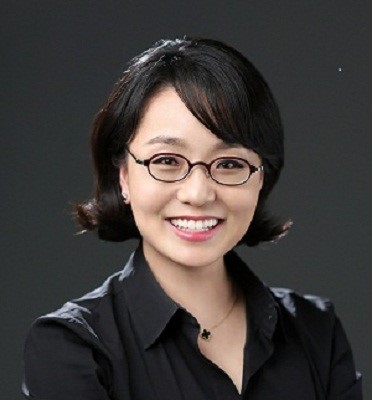Faulty List At SAIHST, we have faculties from various backgrounds such as ; basic science, clinical medicine, pharmacology, engineering, business etc. SAIHST is always open for future competent faculties to lead biomedical science.
| Joo Kyung Park / M.D., Ph.D. |
 Name : Joo Kyung Park M.D., Ph.D.
Department : SAIHST
Title : Associate Professor
Campus : Samsung Medical Center campus
Office : Dept. of Medicine, Div. of Gastroenterology, Cancer building 8th FL, Samsung Medical Center
E-mail : jkpark119@skku.edu, jksophie.park@samsung.com
Homepage :
Lab. title : Pancreas and Biliary Tumor Biology Laboratory
Related Department : Department of Health Sciences and Technology
Print
Name : Joo Kyung Park M.D., Ph.D.
Department : SAIHST
Title : Associate Professor
Campus : Samsung Medical Center campus
Office : Dept. of Medicine, Div. of Gastroenterology, Cancer building 8th FL, Samsung Medical Center
E-mail : jkpark119@skku.edu, jksophie.park@samsung.com
Homepage :
Lab. title : Pancreas and Biliary Tumor Biology Laboratory
Related Department : Department of Health Sciences and Technology
Print
|
|
■ Postdoctoral Training:
2000 M.D. Seoul National University 2005 M.S. Seoul National University 2014 Ph.D. Seoul National University 2005.03 – 2008.02. Fellow ship, Department of Medicine, Seoul National University Hospital 2008.03 – 2009.02. Instructor, Department of Medicine, Seoul National University Hospital 2009.03 – 2009.06. Assistant Professor, Department of Medicine, Seoul National University Hospital 2009.07 – 2011.02. Massachusetts General Hospital Harvard Medical School Visiting Scholar Post-doctoral Research Fellow 2011.03 – 2015.02. Assistant Professor, Department of Medicine, Seoul National University Hospital Adjunct Professor, Seoul National University Hospital, Healthcare System Gangnam Center 2015.03 – 2018.02. Instructor, Department of Medicine, Sungkyunkwan University School of Medicine, Samsung Medical Center 2018.03 – Present. Associate Professor, Department of Medicine, Sungkyunkwan University School of Medicine, Samsung Medical Center ■ Summary: The pancreatobiliary cancer laboratory is the clinical and basic research subdivision of pancreatobiliary Group at Samsung Medical Center. We focus on the integrated multidisciplinary care and research for pancreas and biliary tract malignancies. The focus of the basic and translational laboratory efforts is the genetic mechanisms underlying the initiation, progression, and maintenance of pancreatobiliary disease and cancer, specifically the contribution of genetic alterations. The laboratory also runs a robust clinical research program designed to evaluate the management and care of patients with pancreatobiliary cancer and premalignant cystic lesions. Pancreatic ductal adenocarcinoma (PDAC) is among the most lethal of human cancers. Although a recurrent set of gene mutations has been identified in this cancer type, this information has not translated into significant improvements in patient outcome. Our laboratory aims to understand the genetic program for PDAC initiation, progression and metastasis. We have investigated the pancreatic cancer genomics and transcriptomics based on next-generation sequencing using the pancreatic organoid culture and tumor single cell isolation from EUS-FNA (Endoscopic Ultrasound-guided fine needle aspiration) tissue biopsy sample as well as circulating tumor cell, cell-free DNA and exosome from liquid biopsy. Graduate School of The Samsung Advanced Institute for Health Sciences & Technology (SAIHST) established in 2011 has a unique and specialized training program for outstanding medical doctors and biologists to perform cutting-edge biomedical research. We are interested in understanding the basic disease mechanisms and translational medical research for enhanced cancer diagnosis and therapies. ■ Selected Publications (2015-) 1) Efficacy of EUS-guided and ERCP-guided biliary drainage for malignant biliary obstruction: prospective randomized controlled study. Gastrointest Endosc 2018 Aug;88(2):277-282 2) Correction: Diagnostic performance enhancement of pancreatic cancer using proteomic multimarker panel. Oncotarget. 2018 Jan 12;9(4):5514 3) Utility of targeted deep sequencing for detecting circulating tumor DNA in pancreatic cancer patients. Sci Rep. 2018 Aug 2;8(1):11631 4) Characterization of background noise in capture-based targeted sequencing data. Genome Biol. 2017 Jul 21;18(1):136 5) Additional K-ras mutation analysis and Plectin-1 staining improve the diagnostic accuracy of pancreatic solid mass in EUS-guided fine needle aspiration. Oncotarget. 2017 Mar 11;8(38):64440-64448 |

